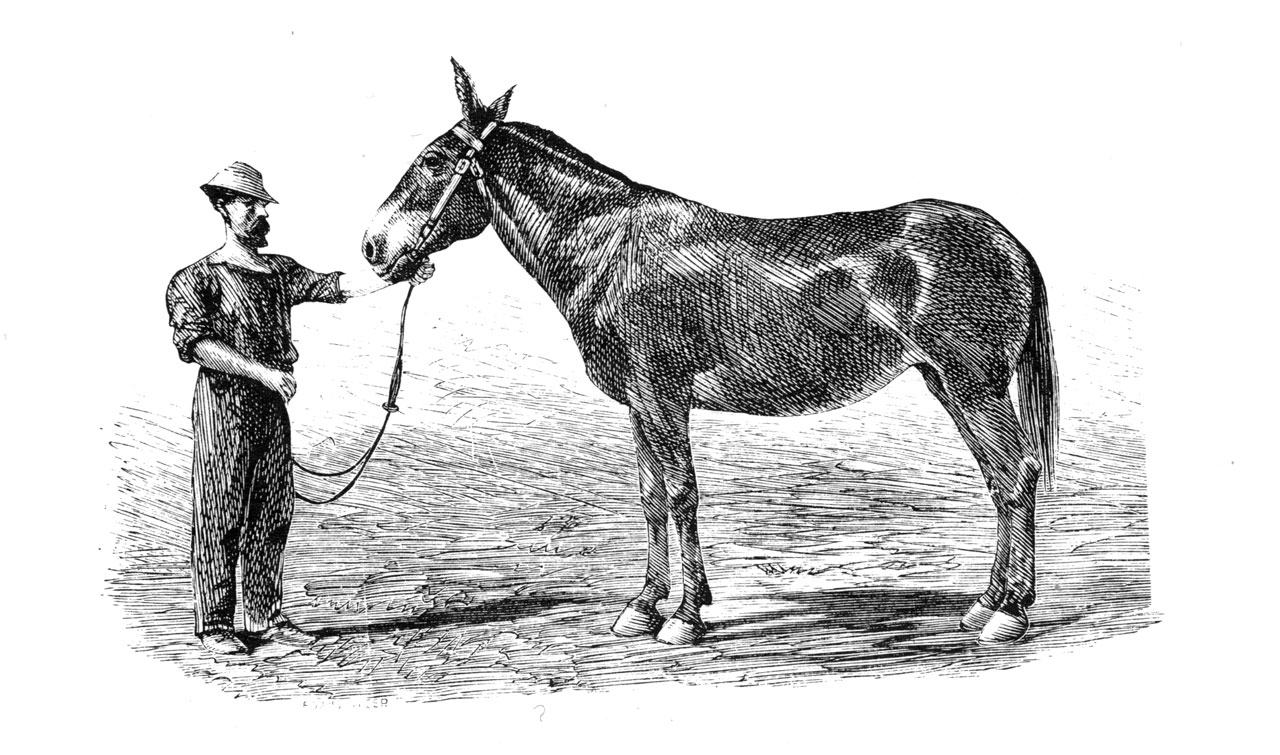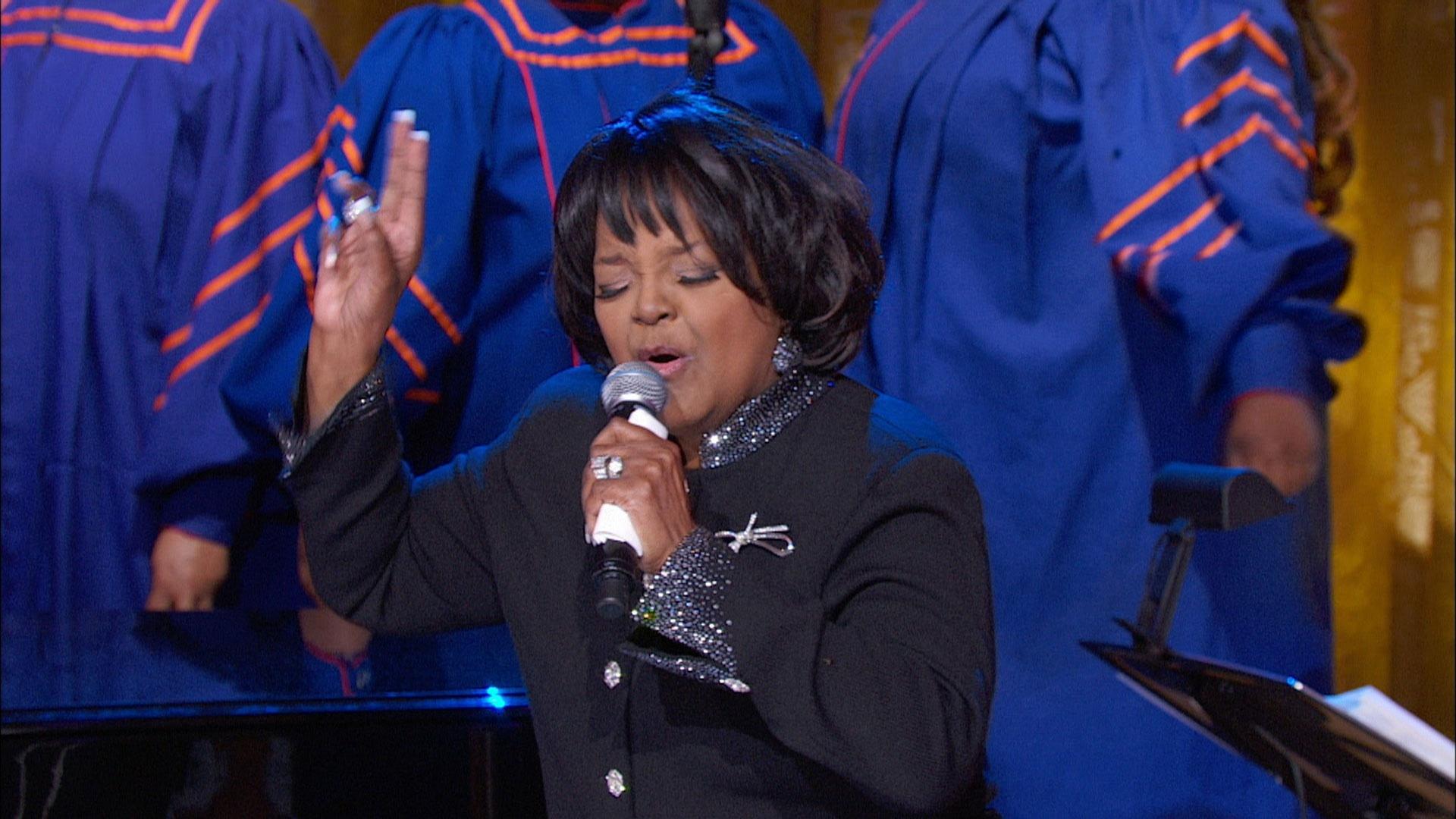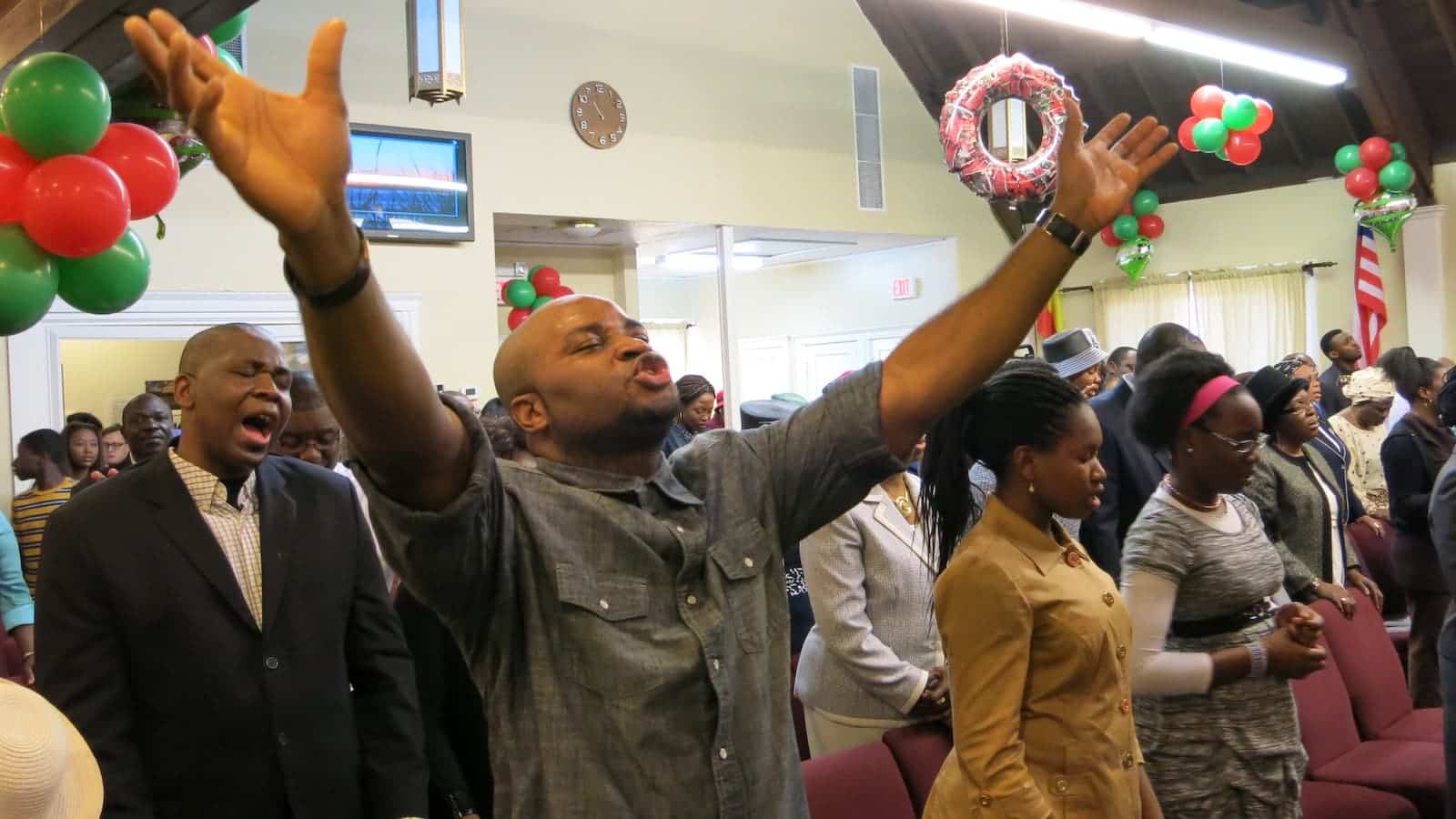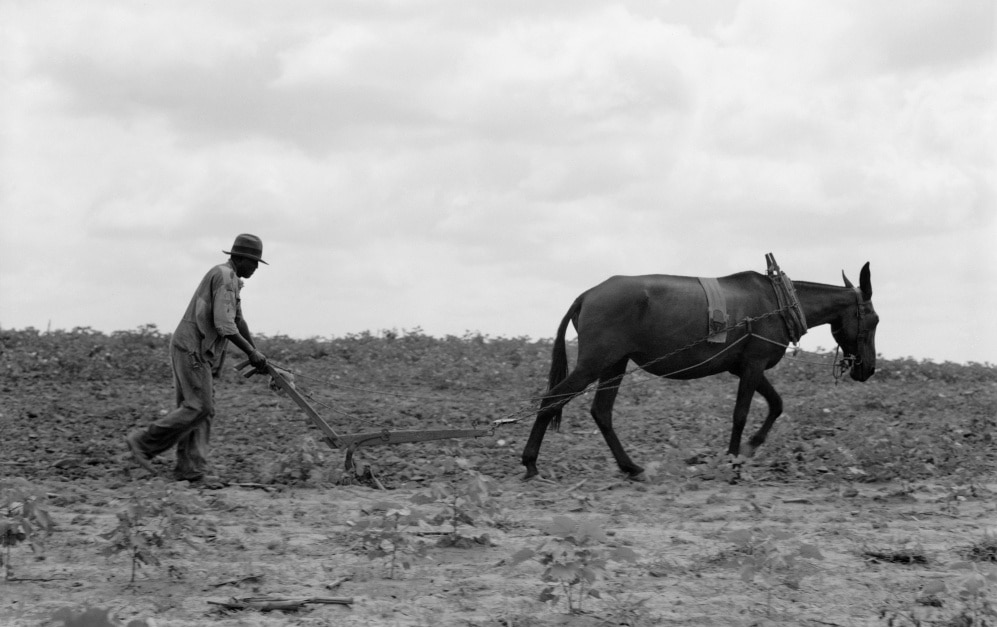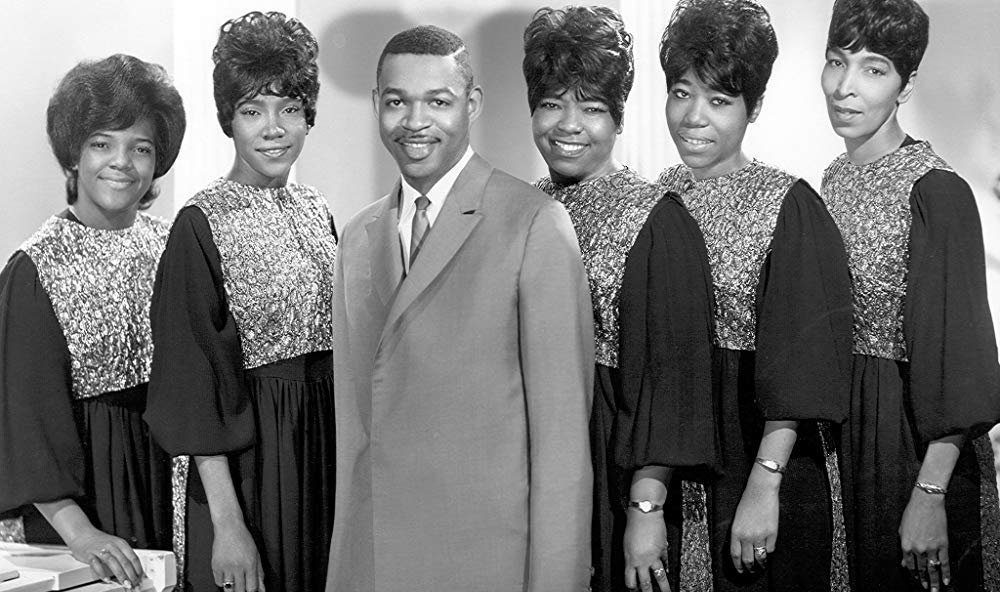What does the expression “hold my mule” mean?
“Hold my mule” is a figurative expression from the American South. This short phrase is meant to evoke the image of a person walking with a mule in tow asking someone nearby to hold onto its reins so that they can attend to some urgent matter.
Colloquially, this expression is most often used to suggest that the speaker either wants to or is about to enter into a confrontation, be it a verbal or physical one. Here’s an example taken from the “hold my mule” entry on UrbanDictionary.com:
SON: Mommy, my teacher called me a dummy.
MOM: Lawd! Somebody hold my mule!
In charismatic church settings, the expression “hold my mule” indicates that the speaker is about to fall out or get happy.
Is the phrase “hold my mule” from the Bible?
While mules and donkeys play a surprisingly prominent role in Christian scripture (e.g. King David gave his son Solomon a mule to ride on after naming him as the successor to Israel’s throne; Jesus’ “triumphant entry” into Jerusalem was on the back of a borrowed donkey), the phrase “hold my mule” does NOT come from the Bible.
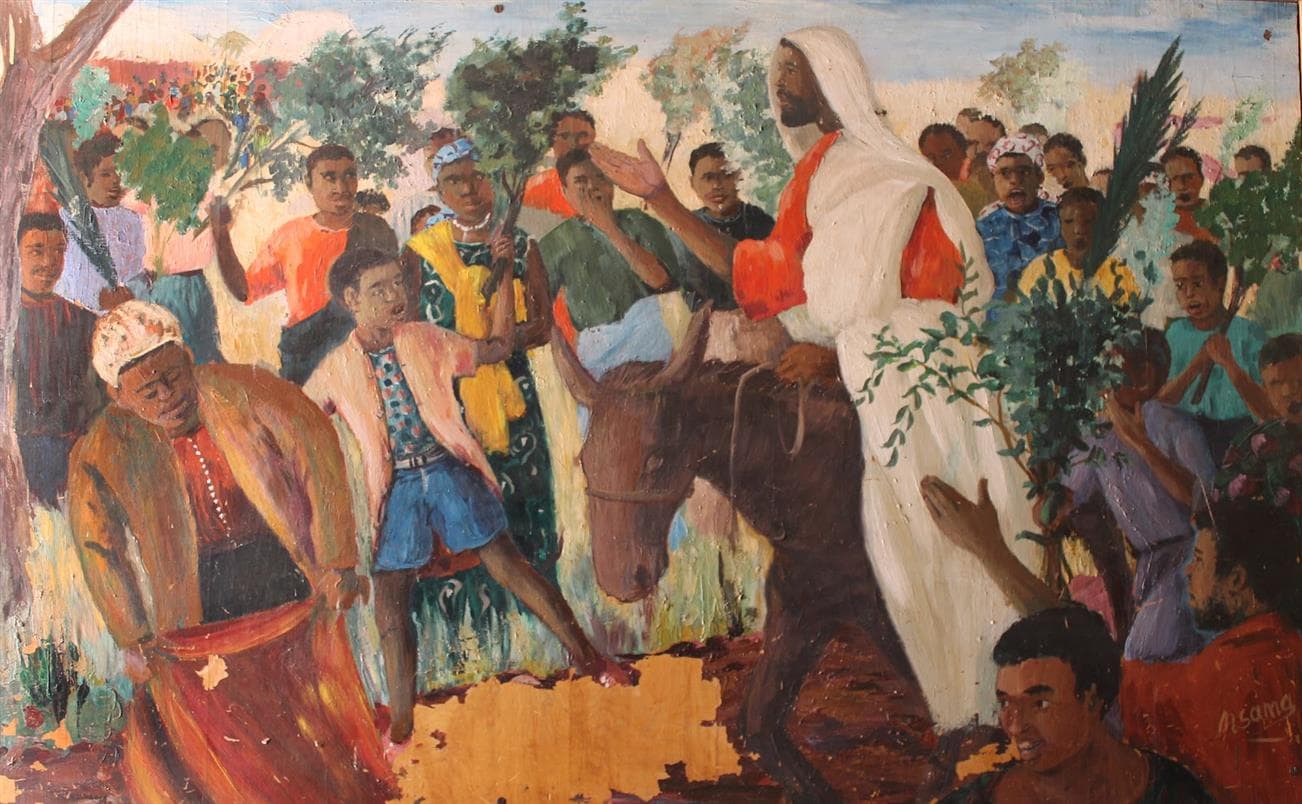
From artist Emmanuel Nsama – Jesus enters Jerusalem on the back of a donkey
Where does the expression “hold my mule” come from?
Unfortunately, the etymological origins of the expression “hold my mule” are not well documented. However, it seems to have originated in dance songs sung by African American slaves in the Antebellum South. For example, the song Hold My Mule While I Dance Josey has been included in a number of collections of American folk music. Its lyrics vary depending on the source but most versions include the lines:
Hold my mule while I dance Josey
Hold my mule while I dance Josey
Hold my mule while I dance Josey
Oh Miss Susan Brown
In contemporary culture, this expression’s connection to Christianity and to charismatic churches seems to have been forged by the 1980 gospel hit Hold My Mule by music legend Shirley Caesar.
What is Shirley Caesar’s song “Hold My Mule” about?
Shirley Caesar’s Hold My Mule tells the story of an 86-year-old man named John, who joined an uptight, spiritually dead church.
From the moment John joined, his presence disturbed the whole congregation. He would come in every week singing, shouting, and dancing. As the sermon was being preached he would dance his way through the pews and around the sanctuary. Everyone raised their eyebrows in disapproval.
For the sake of the congregation, the deacons tried to intervene. But John couldn’t be contained: when they held down John’s legs, his arms would flail out. When they held down his arms, his legs kicked out dancing.
After church one day those deacons talked amongst themselves: “Didn’t John know that we don’t act like that in our church? Didn’t John know that there are dignitaries and all sorts of important people in our church?” The deacons decided that something had to be done. So they drove out to John’s place in their fine cars – their BMWs and Saabs and whatnot.
As they pulled up to John’s ramshackle house, they found him out plowing a field behind an old, beat up mule. They walked out to talk to him. As they approached, John said to them, “I know why you’ve come out here, deacons. You’ve come out here to tell me that I shout and dance too much in church.”
One of the deacons replied, “That’s right, John. If you don’t stop shouting. If you don’t stop dancing. We’re going to have to put you out of our church.”
John said, “Well, then you’re going to have to put me out. Because I can’t hold my peace. Let me tell you why.”
“Look at all that land that you just drove over. God gave me all that land.”
“But you don’t want me to shout in your church.”
“Look at all my children. God gave me all my children. Not one time, have I been to the courthouse on their account. Not one time, have I been to the cemetery.”
“But you don’t want me to dance in your church.”
“Look at me,” he said. “I’m 86 years old. I’m still able to walk behind this old mule. I’m still able to harvest my own crops.”
“But you don’t want me to sing or shout or dance in your church.”
“Well, deacons, if you don’t want me to shout and dance in your church” – and this is where the song’s title comes from – “hold my mule, because I’m gonna sing and dance and shout and give thanks to God right here!”
Watch Shirley Caesar perform “Hold My Mule”
Shirley Caesar’s gospel hit Hold My Mule was first released in 1980 and was an immediate sensation.
In 2016, the song experienced an unlikely resurgence in the gospel music scene after DJ Suede the Remix God remixed a performance of the song into the Thanksgiving anthem You Name It. With this renewed popularity, Hold My Mule made it all the way to the #1 position on Billboard’s Hot Gospel Songs Chart!
Shirley Caesar performing “Hold My Mule”
How is it that Shirley Caesar’s song was so influential that people think the expression “hold my mule” comes from the Bible?
Shirley Caesar’s Hold My Mule is Christian music at its very best. Not only does it tell a story. Not only does it captivate listeners. Not only is it uplifting and encouraging. But, in the story of Shouting John, we encounter the gospel message itself.
Given Caesar’s own life journey and powerful call to the Christian ministry, perhaps that’s no surprise.
Caesar knew loss at an early age. Her father, himself a gifted gospel singer, died while she was still a child. Shirley and her 11 brothers and sisters were left to be raised by her handicapped mother. It seems, however, that the apples did not fall far from the tree. Though times were lean after her father’s death, their house was always filled with the incredible singing of the Caesar children.

From the Urban League of Metropolitan St. Louis – The Queen of Gospel Music when she was just a princess
Through hard work and determination, Caesar eventually landed at North Carolina Central College where she studied business administration. It was there that she first felt called to ministry. According to Kim Hubbard of People, she heard someone call out her name in the middle of a typing test. She turned to the student next to her and asked if she had spoken. She had not! When Caesar was laying on her bed later that dat, she heard the same voice say, “Behold, I have called you from your mother’s womb and I have anointed your lips to preach the gospel.”
Around the time of that remarkable experience, Caesar heard of a gospel music group out of Chicago called the Caravans. Over the years this group would come to turn out any number of gospel singing legends: Albertina Walker, Dorothy Norwood, Inez Andrews, and James Cleveland, to name just a few. Shirley Caesar would also be counted among this number – she got an audition with them and was hired immediately. She left college to pursue God’s call into a life of music and ministry.
The parallels between Shouting John and Shirley Caesar’s own life are undeniable. Just like Shouting John, Caesar knew what it was like to be materially impoverished but spiritually wealthy. Both knew hardship and difficulty in their lives. They also both knew that their lives were suffused with God’s care and provision. Recognizing God’s great love for them, neither could hold back. Both needed to stand up, sing, dance, and shout out of gratitude for that love.
That’s what the gospel is. That’s what the gospel does. The gospel begins with our realization that we are loved by God more than we can possibly imagine. Then, in response and in gratitude for that love, we share that love with others through concrete actions.
Written out of her own life experience and sung by her one-of-a-kind voice, Shirley Caesar’s Hold My Mule articulates the gospel message so powerfully, so vividly, it’s no wonder it has led people to imagine that the expression “hold my mule” comes from the Bible!


